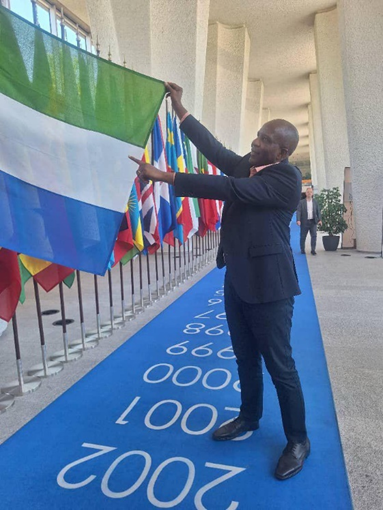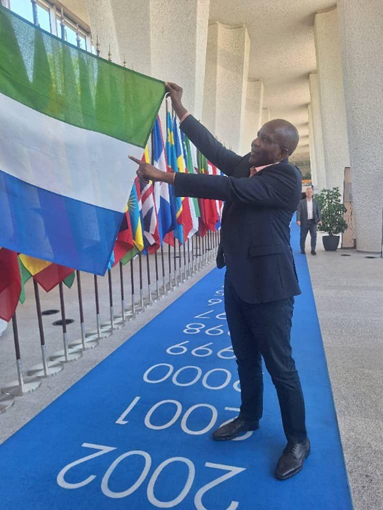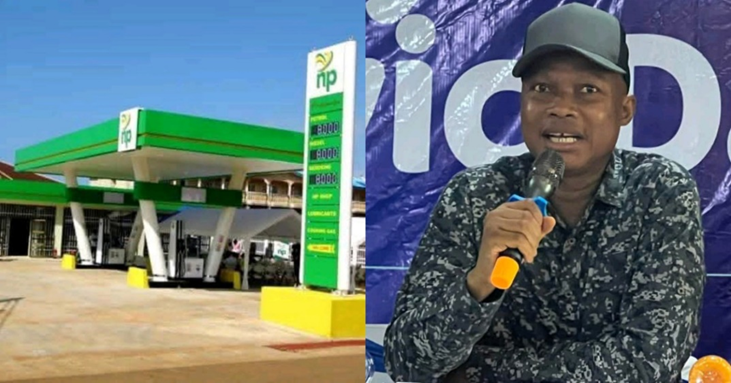By Mackie M. Jalloh
In an inspiring push for inclusive development, the Director General of Sierra Leone’s National Social Security and Insurance Trust (NASSIT), Mohamed Fuaad Daboh, has positioned Sierra Leone on the global stage as a champion of social protection for informal sector workers. His address at the 130th Bureau Meeting of the International Social Security Association (ISSA) in Geneva on June 24, 2025, underscored the country’s steady progress in bridging the social security gap for the majority of its workforce.
In a room filled with global social security leaders and policy experts, Daboh highlighted that nearly 90% of Sierra Leone’s working population remains outside the reach of formal social security mechanisms—largely because they operate in the informal economy. He described this exclusion as a serious development challenge but emphasized that the country is now making strategic moves to reverse the trend.
According to Daboh, the turnaround began in earnest under the administration of President Julius Maada Bio, whose government has prioritized extending social protection to previously unreached demographics. “The political will has been decisive,” he said, attributing the renewed momentum to government support, inter-agency collaboration, and strong partnerships with international organizations like the International Labour Organisation (ILO).
Although conversations on informal sector inclusion began as early as 2007, Daboh noted that it wasn’t until 2018 that substantive policy development took off. “For years, we operated a robust formal sector scheme,” Daboh stated, “but we realized that for real progress and equity, the needs of market women, bike riders, traders, and artisans could no longer be ignored.”
Daboh explained that NASSIT has since developed a new social protection scheme tailored for the informal sector, one which considers the realities of low and inconsistent incomes. With the technical support of the ILO, the scheme has been fully designed, validated, and approved by the Minister of Employment, Labour and Social Security, and the national steering committee. The next steps involve policy endorsement at Cabinet level, legislative ratification, and wide-scale sensitization ahead of the scheme’s launch in late 2025.
“Social security is not a luxury—it is a human right,” Daboh asserted. “Our institutions must evolve to ensure that this right is guaranteed for every citizen, regardless of their employment type.”
Beyond the plenary session, Daboh held a private consultative meeting with Dr. Shahra Razavi, Director of the Universal Social Protection Department at the ILO. During their engagement, Daboh requested enhanced technical assistance in the form of a resident consultant to support the roll-out of the informal sector scheme. He also sought ILO’s support in capacity-building and peer-learning initiatives to strengthen local implementation capacity.
Dr. Razavi praised Sierra Leone’s ambitious drive and assured Daboh of ILO’s continued interest in the project. She promised to engage the regional ILO office in Abuja and actuarial experts to assess training needs and tailor interventions to support the country’s unique context.
The ISSA Bureau Meeting, held from June 23–24 in Geneva, brought together senior officials and policymakers to discuss global trends, challenges, and innovations in social security. Sierra Leone’s proactive presentation was well received, casting the country as a rising voice in the push for universal social protection.
As the nation moves towards making the scheme operational in January 2026, Daboh’s presence in Geneva reaffirms Sierra Leone’s readiness to transform policy ambition into impactful social reform—ensuring that no worker, formal or informal, is left behind.
NASSIT: Redefining Protection for All.




